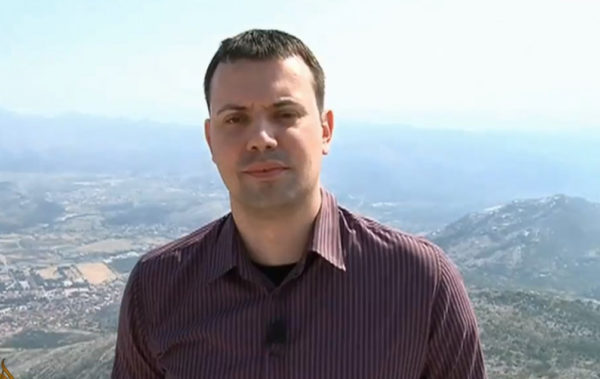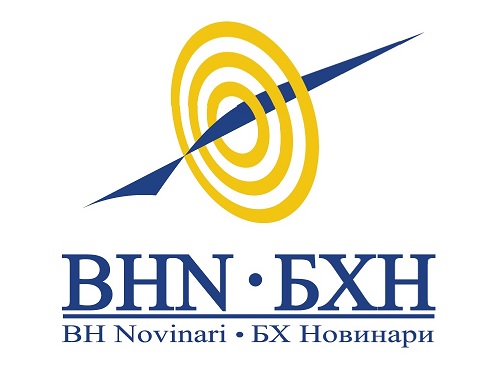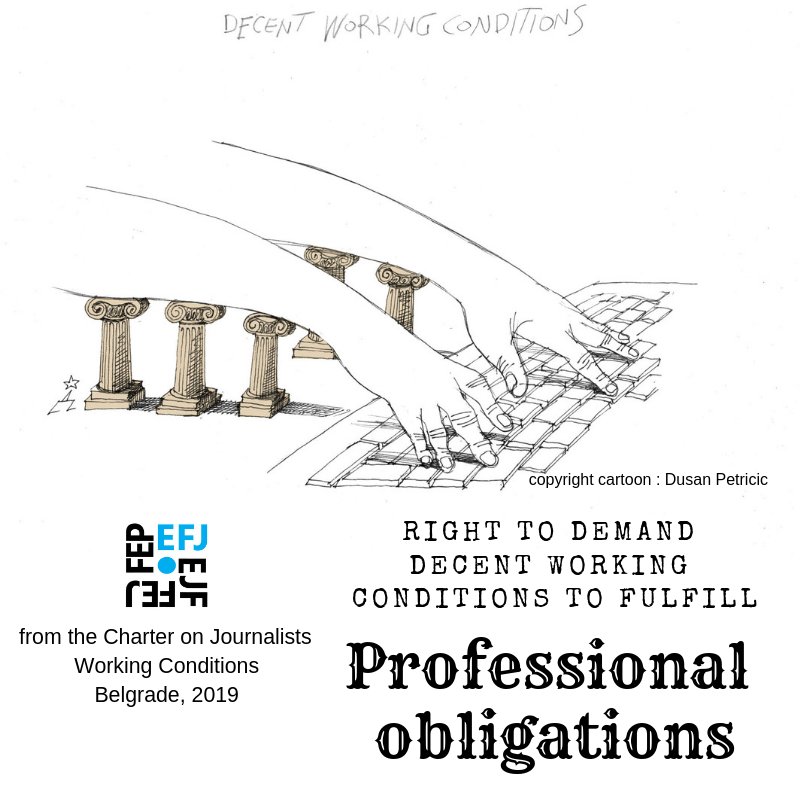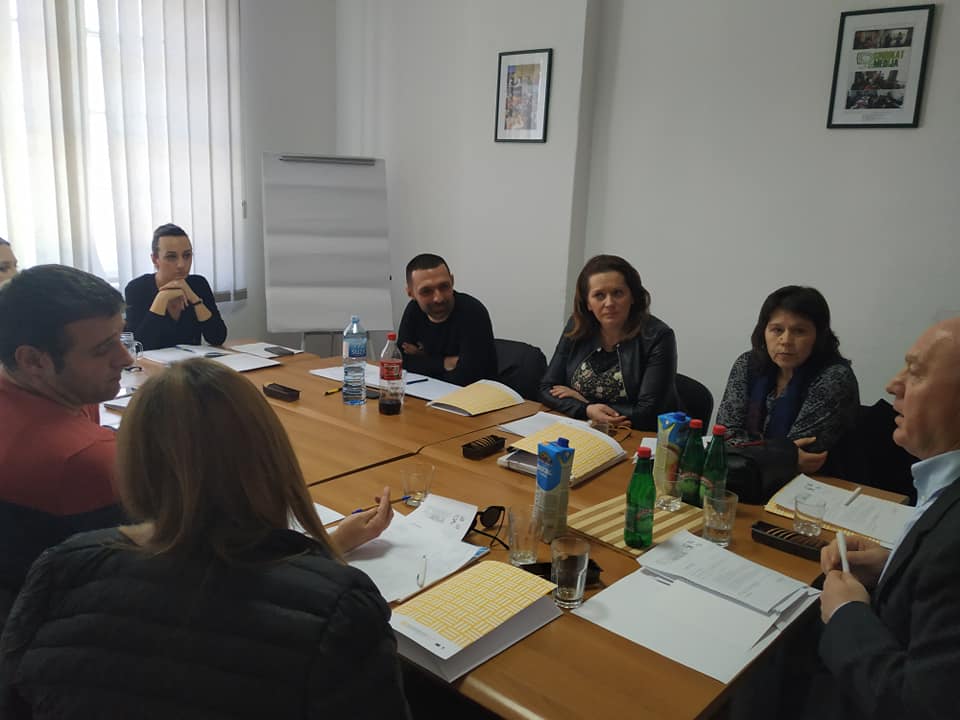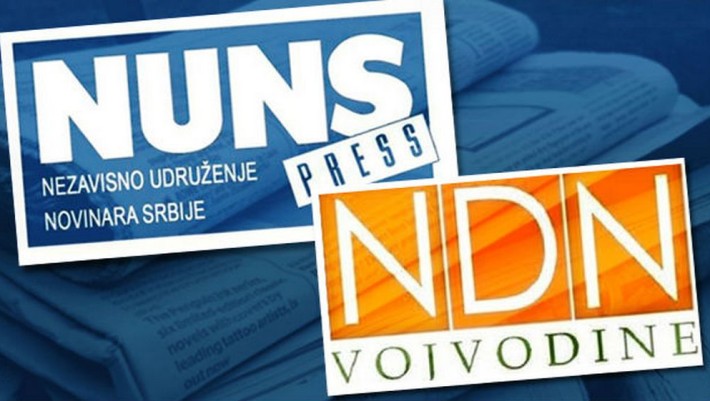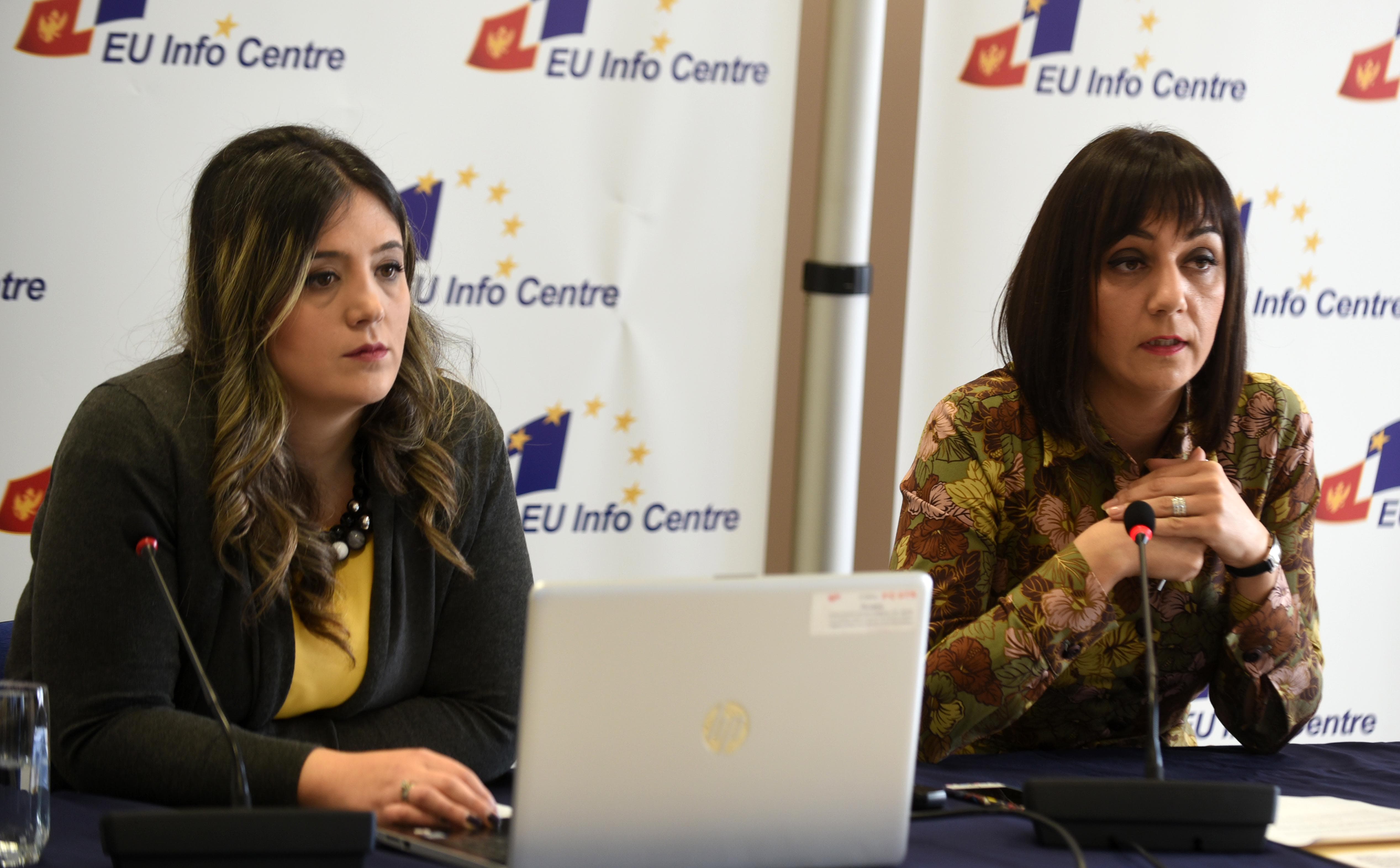SARAJEVO, 12.02.2019.-The choice of public broadcasting service editor of information, news and documentary program, has not only confirmed direct political influence on the program product of the public broadcasters, but it has, once again, jeopardized the survival and persistence of the public broadcasting system in Bosnia and Herzegovina as one of the fundamentals aspects of democracy – based political principles that the European Union expects from us.
Wrapped model of ethnic and national key, which deviates from fundamental civil values of modern democratic societies, constant implementation of (para) political model of governing and managing of public communication system in Bosnia and Herzegovina, does not only questions free information flow, but also deprive the entire national communication system, making it subordinate and subject to (mainly) political disorientation of general public, as the only potent political category in transitional process.
In this context of considering challenges that modern public radio and television system in Bosnia and Herzegovina has been facing, it is important to define the necessity of the following syntagma, namely “(para) political model”, in terms of identifying a specific form of managing the public broadcasting system, being implemented in Bosnia and Herzegovina. It is clear that the limiting factor for the entire reform of public works and organization of political system in Bosnia and Herzegovina, represents constitutional determination of political processes subjects through the categories of constitutive (constitutionally equal) ethnic groups and other citizens, which is primarily implemented during the appointing of responsible persons to highly – ranked public functions and duties.
However, if we analyze current cases of appointing certain individuals to editing functions at the state broadcasting level, we shall soon realize that the ethnic key, that is, referring to constitutional organization of public system, actually displays the cover (“smoked screen”) for positioning of political figures who cannot be considered and additionally treated as competent job performers, in order to perform particular and demanding functions.
This specific politics of governing, managing and handling public functions, resulted in the situation where the public interest has been brought to a complete absence of comprehension and understanding of public interest or political influences on the quality of lives and the existence of citizens, which at the same time, shall open utter freedom for the privatization of democratic processes within political parties.
Public financing of private interests
Having in mind a common definition of public services as the pre-established system by the public, including citizens’ financing and supervising, which additionally represents primary regulators of business operation transparencies of public radio and television systems, we shall accordingly acknowledge that that the process of governing and managing the public communication in Bosnia and Herzegovina will move in the opposite direction, comparing to theoretical presumptions.
Regardless to how unacceptable the model of constitutional principles of ethnic groups living in Bosnia and Herzegovina, which denies and negates a citizen as a universal democratic category, this model does not necessarily exclude competencies of particular ethnic group members and at the same time, it cannot serve as the polygon and field for political party interventions, as part of the process which directly reflects to democratization of the entire political situation and state during the transitional period of state and public institutions.
The reasons for accepting the privatization of public works can be seen in common and silent acceptance of present situation which can be considered as inevitable relationship of powerful positions, in which common citizen does not identify her/ himself as active subject of political processes, but rather as the victim of actual cultural and historical context, again where political party represents the only legitimate subject for the accomplishment of political rights.
On the other hand, if we take the example of public radio and television system and constant decline of public trust into disturbed media contents and programs, we shall clearly discover that the core of this problem is seen in producers (journalists), who deliberately abandoned public communications leaving it in mercy and disgrace of outer factors (mostly factors of political nature), while they, at the same time, failed to recognize the public interest, as key financiers, as a crucial factor of the sustainability of the public broadcasting independence.
Reaction to political interference during the process of managing the public broadcasters emerges at the end of the process of appointing key figures to responsible functions or during the time where personal existence of journalists as media house employees becomes jeopardized or endangered. In this kind of determined relationships, in relation with public responsibility, citizens do not want to be financiers of public works which, instead of serving common public interests, become an open room for the privatization of public institutions and instrument-based democratic processes, with the purpose of prevailing over powerful positions.
Abstraction of responsibility
One of the crucial problems during the process of identification of responsibility aimed to manipulate over public works is the abstraction of subjects referred to as the bearers of responsibilities for actions that, looking from long – term perspective, have the non-affirmative and negative impact on general public interests. Hence, for instance, the “political parties”, “official and authorized institutions”, “ruling governments”, “members of parliaments / assemblies” or other similar and associated syntagm, have been used to cover and hide the identity of individuals considered as hosts of public works, which, in specific period undermined and violated public interest, are used in rare critical attitudes and opinions in relation with the misuse of public works.
This is exactly how, during the process of appointing of editors of information, news and documentary programs in original information, the relationship between voices within managing boards which always conducts these appointing, without additional elaboration of every single candidate and member, towards this particular process; or even failed to present legal set of rules as part of the procedure upon which such appointing is conducted. On the other hand, critics directed to the selection of candidates also failed to offer an explanation of required corrections during the appointing process, or complaints regarding the competences of the members of the managing board, which had launched the above mentioned appointing procedure.
Even in criticizing such procedures there is a clear indication regarding how behind this process there is most probably a “political party”, and that “official and authorized institutions” being subject to instrumentalization by the “ethnic parties”, have no capacities to respond during the process of the privatization of public works. It is because of these abstract identifications of public responsibilities that citizens lose interest for the responsibility of public functions hosts (including their legal duties), and public discussions, covering the current issues, most likely terminates within a few days, which was the case with the disputable appointing process of certain people in public and state service institutions. Having in mind this kind of political immaturity in leading and managing public works, but also in the discussion regarding the responsibility of public function hosts, we can understand that business implementation, which implies the reform of the total political system, has been stagnating ever since the end of military conflict and war.
For example, the laws regulating the field of public broadcasting has never even been clearly defined and despite many suggestions and recommendations by certain European institutions for reform monitoring, responsible people which at a certain point did perform functions in this particular area terminated their mandates without any progress in this specific process. Opposite to frequent suggestions for the establishment of central – based bodies in order to attain work supervision in most appropriate way, as, for instance, would best be demonstrated through the establishment of the Corporation of public services, as the system manages to remain sustainable based upon the fundamentals of divided responsibilities and unstable supervision over human resources and economic operations, which furthermore allows constant privatization of public services and the entire system of public communication.
In these relationships of political managing, citizen (who shall remain a permanent marginalized category and political rights, including the opportunity for performing managing positions), can be attained mainly through the membership in the political party, which again, in modern Bosnian and Herzegovinian political context is represented through corporations for common goods.
This text is a part of E-Bulletin– eighth edition of special serial of BHN online bulletin implemented through the “Media and Public Reputation” (origin. “Mediji i javni ugled”) project, also representing a contribution to public debate regarding the transparency of media ownership and upholding and encouraging the passing of set of laws aimed to advance media field and information market in BiH.


